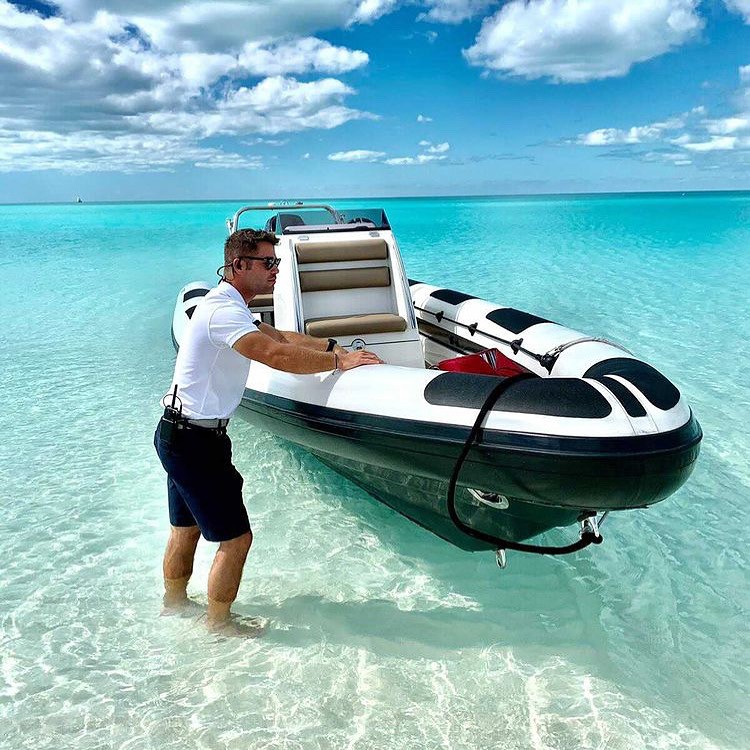Been wondering how to start a career in the the superyacht industry, or aren’t sure why your CV isn’t getting you anywhere? Wilsonhalligan Recruitment is here to explain.
What Do You Need To Work On Superyachts?
Life experience
Work experience
Ideally, a candidate will have held a full-time job for a minimum of six months – preferably in a role relevant to yachting.
In the yachting industry, some boats may require you to work seven days a week during a season, with 50% of your time spent working at night. You’ll be sleeping in a noisy environment, with a loud engine and anchor drops, and will be in close proximity to your colleagues most of the time.
With limited downtime, it’s an exceptionally demanding job. The more exposure you’ve had to challenging working conditions in the past, the better equipped you’ll be to not only survive but thrive in this environment.
The yachting industry has a clear chain of command and hierarchy that demands respect. You’ll be taking instructions from people across various departments, and your colleagues may come from diverse cultures, nationalities, and age groups.
The more exposure you’ve had to challenging working conditions in the past, the better equipped you’ll be to not only survive but thrive in this environment.
What Are Recruiters Looking For?
The list is pretty endless. Relevant skills and experiences are very appealing, and all of the below suggestions should have been undertaken in a professional, paid working environment:
- High end hospitality. For example, Michelin starred restaurants, 5 star hotels, Luxury estates, members clubs (in service or housekeeping). Pub or café work is a great start – but to truly impress, higher end hospitality work is better
- Event management (the more high-end the better)
- Floristry, barista, mixologist, beautician, masseuse, yoga / Pilates instructor, PT
- Boat building, carpentry, building work, good with hand & power tools
- Water sports instructor. For example, diving, wake boarding, kite surfing
- Boat maintenance, working in a marina, driving small boats
- Paramedic / nurse, additional medical training skills (from the military for instance)
What Are The Next Steps?
Don’t have the above skills? Take a different approach.
![]() Debunking Crew Myths!
Debunking Crew Myths!
It isn’t all smooth sailing! Aspiring crew members might have certain expectations based on popular portrayals of superyacht life. However, it’s crucial to debunk some common myths:
- You Can Chill Out When The Guests Go: Contrary to reality TV, post-guest trips involve extensive cleaning and preparation for the next voyage. As crew members, you often don’t have access to guest facilities.
- You Have Plenty of Chances To Explore: While some yachts visit incredible destinations, the ability to explore depends on the yacht’s itinerary. Work commitments may limit your chances of going ashore, especially if you are part of the engine room or interior team.
- It’s A Glamorous Job: Yachting is undoubtedly an exciting industry with opportunities to interact with celebrities and affluent clients. However, the job often involves challenging tasks – you’ll be more of a glamorised cleaner or waiter.
- You’ll Always Get Big Tips: While there’s potential for good tips, it’s not guaranteed, especially on private yachts where tipping norms may differ.
- Short Courses Guarantee Ease of Entry: Completing a short deckhand or stewardess course doesn’t guarantee an easy job search. Yachting is highly competitive, and experience, even outside the industry, is often valued more than specific courses.
- Everyone Gets Along: On-board life may seem like a happy family, but limited space and close quarters can lead to occasional friction. Adherence to rules and hierarchy is crucial, with the captain as the ultimate authority.
- Fast Progression Is Easy: Experience is key for career progression. While exams can be completed, gaining practical experience takes time. Building strong foundations is essential for long-term success.
- Yachting Is a Great Gap Year Opportunity: While not impossible, pursuing yachting as a gap year may be challenging unless you have a strong and relevant background. Many yachts prefer crew members committed to a long-term career.
When considering the yachting industry, it’s essential to approach a career with a realistic mindset. Despite the fantastic rewards, the industry demands hard work, and many newcomers discover it may not be the right fit for them. Be cautious. The media has a habit of depicting everything through rose-tinted glasses. Remember to be skeptical if someone asks you to pay anything before they find you a job.
Visit Wilsonhalligan Recruitment’s website here: https://www.wilsonhalligan.com/

To keep up to date with the latest Superyacht Content News, click here.
Sign up to our Newsletter below:







.gif)





.gif)






